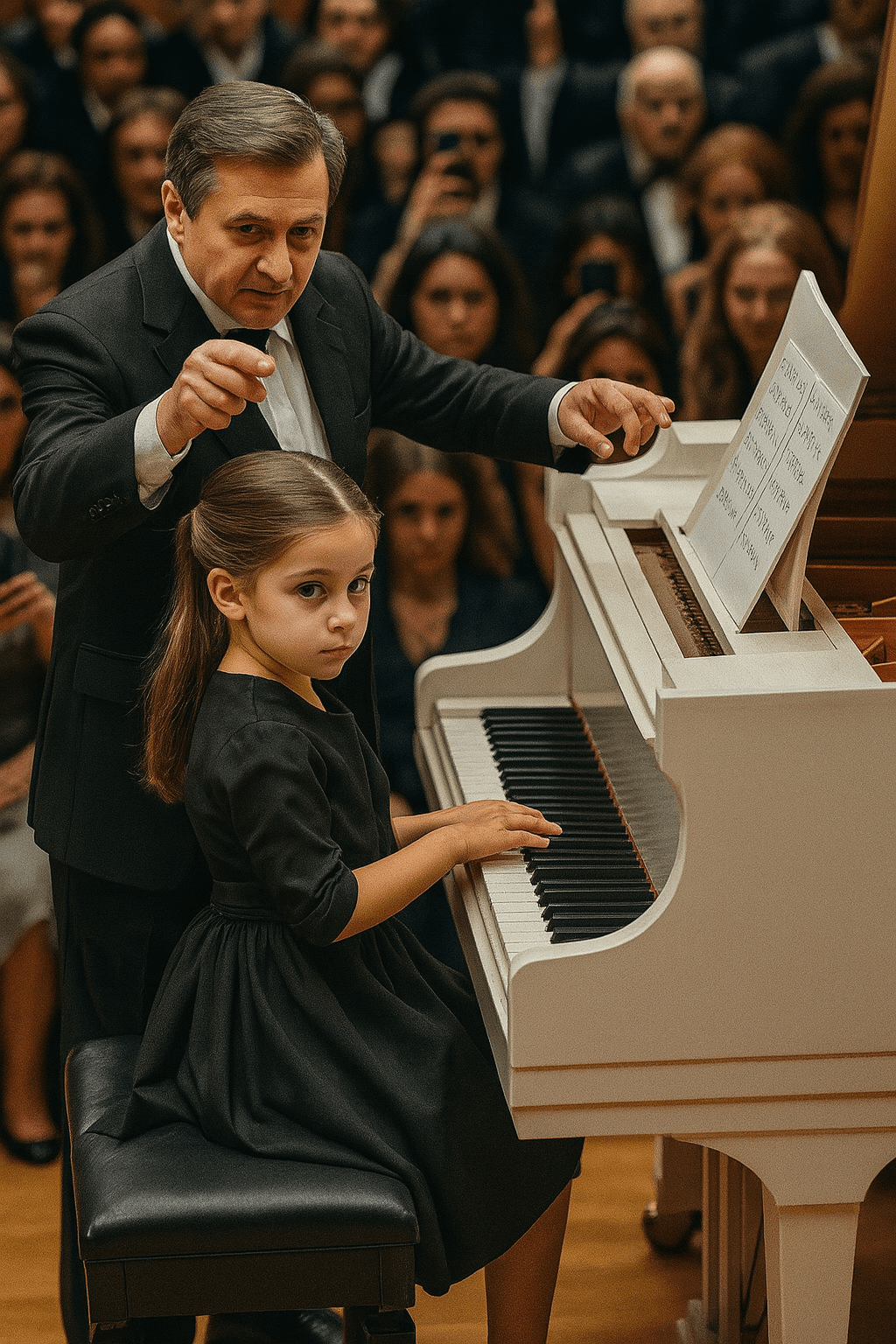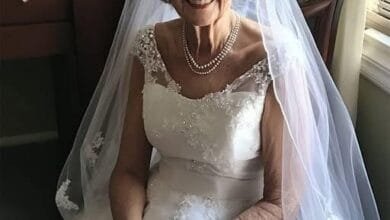The Blind Pianist Who Silenced the World

At fifteen, Svetlana Andreeva stepped out from behind a velvet curtain. Her dark skin contrasted with a plain black dress, and her white cane tapped softly on the floor—a sign of her blindness, but also of her deep connection to the world around her.
Unknown in classical circles, she approached a gleaming Steinway grand piano, its polished surface reflecting her silhouette.
Then a sharp voice broke the silence.
From backstage, Boris Smirnov—an acclaimed and arrogant pianist—sneered:
“She’s going to ruin the piano,” he spat.
“A blind nobody near my $150,000 Steinway? This isn’t a charity show.”
There were awkward coughs, a few chuckles. No one stood up for her.
But Svetlana didn’t flinch. She held her cane firmly and walked to the piano with quiet grace. Ignoring the noise, she sat down. The tension in the room was thick. Smirnov barked again, but she didn’t move.
Her fingers, which had once struggled on a broken orphanage keyboard, now hovered over the keys. She played a single note—soft, fragile—but it sliced through the doubt like sunlight breaking fog.
And the hall went silent.
What followed wasn’t just a performance. It was pain, hope, and defiance turned into music.
Svetlana had been blind since birth and orphaned at three. At thirteen, she was accepted into Eastbrook Conservatory—a school for the elite, not blind orphans. She was placed in the “Silent Observer” program, which meant no real classes, no rehearsals, no piano time. She was a ghost.
But she listened. She sat outside lecture rooms and absorbed music through the walls. She tracked rhythm by counting footsteps. She memorized melodies in her mind. Alone in her room, she traced musical patterns on her thigh.
The cruelty was constant. One day, she wandered into a rehearsal room and a student laughed, “Since when does the school allow pets?”
No one intervened.
But instead of giving up, Svetlana learned to listen even more closely. She felt floor vibrations, echoed tempo in the corridors. She composed entire pieces in her head—without any instrument.
One day, retired professor Igor Petrov noticed her miming a fugue with her fingers in the air outside his classroom. Moved by her dedication, he invited her to play in a dusty storage room with a forgotten upright piano.
He didn’t teach technique. He told stories.
“A fugue,” he said, “is a soul chasing itself.”
“D minor isn’t sad—it’s the shadow light leaves behind.”
Svetlana understood music emotionally, not academically.
Word of her talent spread, but head professor Andrei Moskovich wasn’t impressed.
“This school isn’t for sentimental experiments,” he told Petrov.
Petrov secretly recorded one of her improvisations and submitted it to the school’s annual auditions. She was placed on the schedule—not in the main hall, but at dawn, in a backroom, with an old upright piano. A formality, not a real chance.
Still, she showed up early. Petrov walked her to the room and said,
“It’s not about them choosing you. It’s about whether you still need their approval.”
In that room, she poured her soul into Rachmaninoff. No one clapped. The judge left.
But a janitor had recorded her and uploaded the video titled:
“Blind Girl Rejected by Conservatory Plays Rachmaninoff by Heart.”
It went unnoticed—until a famous pianist shared it:
“I haven’t cried from music in ten years.”
A deaf artist commented:
“I felt her through the speakers.”
Soon, millions watched. The world saw what Eastbrook ignored.
Moskovich dismissed it—until the International Music Institute sent a message:
“We want Svetlana Andreeva to open the World Harmony Gala.”
He had no choice but to accept.
Now living with old Petrov, Svetlana received the invitation in Braille. He handed her a simple black dress.
“It doesn’t need to shine,” he said. “It only needs to sound right.”
At Crescendo Hall in New York, during rehearsal, she played barefoot—her way of feeling the stage.
Smirnov, scheduled to perform after her, raged:
“She goes first? I won’t follow a blind amateur!”
The director replied calmly,
“Then don’t. But she will.”
That night, Svetlana stepped onto the grand stage. No spotlight. No orchestra. Just her, a piano, and a small wooden flute—her mother’s keepsake.
She opened with her own composition: a sorrowful G note, followed by fragile chords—some dissonant, others filled with hope.
Her left hand spoke of hardship; her right of searching. It wasn’t polished. It was real.
Midway through, she paused. She picked up the flute and played a haunting melody—like a lullaby forgotten and rediscovered.
It wasn’t performance. It was testimony.
Backstage, Smirnov stood frozen—not shaken by skill, but by truth.
When she finished, the room stayed quiet—then erupted into applause.
Svetlana didn’t smile. Didn’t bow. She picked up her flute, her cane, and walked offstage.
She didn’t just leave music behind.
She left a revolution.
The world didn’t just hear her.
It finally listened.





